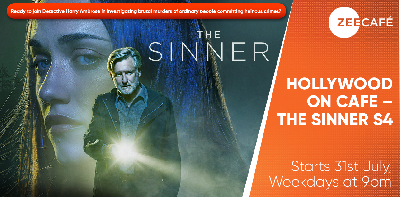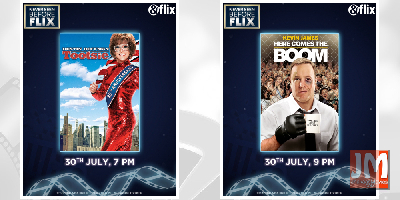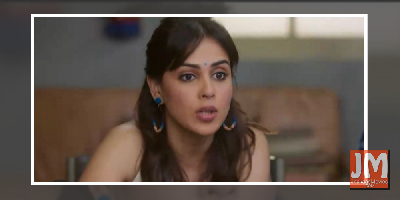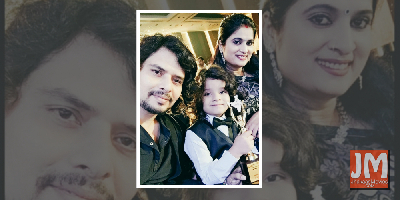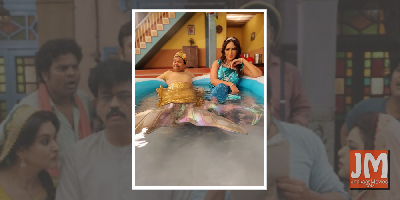 Aan Tiwari honoured with Best Child Actor award for Baal Shiv
Aan Tiwari honoured with Best Child Actor award for Baal Shiv Ghategi rahasymayi ghatnaye!
Ghategi rahasymayi ghatnaye! Amazon Prime Video unveils the 2021 Festive Line-up; brings a heady mix of Indian and International titles on the service
Amazon Prime Video unveils the 2021 Festive Line-up; brings a heady mix of Indian and International titles on the service Release: Music video of, Yeh Haalaath, from Mumbai Diaries 26-11
Release: Music video of, Yeh Haalaath, from Mumbai Diaries 26-11 Bhumi Pednekar feels she shares feel-good value with Akshay Kumar on screen
Bhumi Pednekar feels she shares feel-good value with Akshay Kumar on screen
OTT regularisation: Content creators air views

The government has decided to introduce a new set of guidelines for OTT platforms, which has left content creators wondering what will come next. Many on social media have speculated if this is indirect censorship.
Filmmaker Vikram Bhatt, who has created web series such as "Twisted", "Maaya" and "Twisted 3", says: "Unfortunately, the nature of politics is to make issues and there is nothing that makes issues better than Bollywood and showbiz. Yesterday, people were more interested in OTT and social media than in Nirav Modi's extradition. This is the nature of the beast. I think we can shout, scream and go crazy, that's the rule of the game."
The filmmaker adds: "Every country has a safe zone and as long as you play in the safe zone, things are fine. The minute you step out of it, you will be penalised. That is the rule of the game whether you like it or not. You can scream blue murder, nothing is going to happen. For years filmmakers have asked the government to turn films into a regulatory system like the OTT. The censor board gives certification but they are still giving cuts. It has been years and years now, and all my career I have been waiting for something to happen but nothing did."
Pritish Nandy, creator of the popular web series "Four More Shots Please", tells IANS: "Without doubt the purpose of this regulation is to have greater control over digital media and OTT platforms, which have in recent times demonstrated amazing power and reach through their content. The banality of Bollywood has been left miles behind by new-age original content. Indian content makers have also shown that they can compete against the best in the world."
Writer Sumrit Shahi, who has is the writer behind web shows such as, "Never Kiss Your Best Friend", "Dev DD 2", and has worked on television shows such as "Ek Veer Ki Ardas...Veera" and "Sadda Haq", says: "It is indirect censorship. It is trying to form an opinion on what can be seen or not. Unlike television or films, which are means of collective experience, OTT content was meant for private viewership. OTT content by its nature was meant for individual consumption, hence the idea was giving people the choice to view. Censorship is made keeping these things in mind."
The current directive from the Ministry and Information and broadcasting says:
* The OTT platforms would self-classify the content into five age based categories- U (Universal), U/A 7+, U/A 13+, U/A 16+, and A (Adult).
* Platforms would be required to implement parental locks for content classified as U/A 13+ or higher, and reliable age verification mechanisms for content classified as A.
The government has also suggested a "Grievance redressal mechanism", according to which:
* A three-level grievance redressal mechanism has been established under the rules with two levels of self-regulation- Level I being the publisher and Level II being the Self Regulatory Body, and the third level being the Oversight Mechanism under the Ministry of Information and Broadcasting.
* The rules provide for an effective grievance redressal mechanism for receiving, processing, and time-bound disposal of public grievances related to the Code of Ethics. The self regulatory body would be headed by a retired judge of the Supreme Court or of a High Court, or by a person of eminence from the relevant field, and can issue advisories to the publisher.
* The mechanism is based on the principles of minimum Government intervention; however platforms should develop a robust grievance redressal mechanism on their own.

